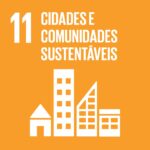
University of Coimbra project aims to make buildings safer and more fire-resistant
One of the aims of the University of Coimbra’s project is to create a “Refuge House”, an infrastructure with a forest fire risk so low
We didn't find any happenings mapped to your criteria.
Try the traditional search to find articles not yet mapped with RUA.
We didn't find any happenings mapped to your criteria.
Try the traditional search to find articles not yet mapped with RUA.
We didn't find any happenings mapped to your criteria.
Try the traditional search to find articles not yet mapped with RUA.
We didn't find any happenings mapped to your criteria.
Try the traditional search to find articles not yet mapped with RUA.
The project is called “Muxagata Aldeia Sustentável” [“Muxagata Aldeia Sustentável”] and promotes community composting, door-to-door waste collection and bonuses for those who separate bio-waste correctly.
The parish of Muxagata, in the municipality of Fornos de Algodres, now has a door-to-door collection system that sends bio-waste for treatment on a community composting island. The project is called “Muxagata Aldeia Sustentável” and is born out of a “zero waste” approach.
With the new collection system, the citizens of Muxagata can easily separate waste at home, simply by placing the bags of recyclables (glass, paper and cardboard, plastic and metals) and the five-liter container for bio-waste outside their homes on collection days.
The bags and containers were distributed to the population during an initial awareness campaign, and the latter have a numerical reference that allows the producer of the bio-waste to be identified so that those who separate it properly can later be rewarded.
The collection is carried out by a municipal team, with the support of the parish, and is done three times a week to make it easier for citizens to sort and dispose of their household waste.
In a second phase, the containers of undifferentiated waste available on the street will be replaced by smaller ones, in order to communicate to citizens that the goal is separation.
At the same time, a community composting unit has already been set up in the parish, which will be able to treat all the bio-waste separated by the population. Its operation is ensured by technicians and operational assistants from the Municipality and the Parish Council, who manage and monitor all stages of the composting process until the compost is obtained, so that it can be made available to the population (for use in gardens and vegetable plots) or sent to the management of municipal green spaces.
Until now, there were few ecopoints on public roads and the bio-waste was collected and transported together with the unsorted waste to the RESISTRELA facilities (Centro de Valorização e Tratamento de Resíduos Sólidos Urbanos da Cova da Beira).
The new system brings waste management closer to citizens, promotes proximity collection and raises awareness of correct waste separation, with constant support and communication from the Parish Council team.
With this combination of collection and proximity processing, ZERO — a Portuguese environmental group — estimates that:
The project has been underway since the beginning of October and is accompanied by ZERO, financed by GAIA (Global Alliance for Incinerator Alternatives) and supervised by Zero Waste Europe.


One of the aims of the University of Coimbra’s project is to create a “Refuge House”, an infrastructure with a forest fire risk so low

The Smart City Expo World Congress looked at transportation options in more than 20 European cities. London, Amsterdam, Vienna, Berlin and Helsinki are the ones

A recent study evaluated around 10,000 cities around the world in terms of their accessibility to essential services. Europe stands out positively, especially in small

This article addresses an action that promotes change towards more inclusive, safe, resilient and sustainable cities and communities, helping toreduce the adverse environmental impact of cities.
 To discover businesses that are actively working to contribute to this Sustainable Development Goal, click here.
To discover businesses that are actively working to contribute to this Sustainable Development Goal, click here. To read news, interviews or tips related to this Goal, click here.
To read news, interviews or tips related to this Goal, click here.Esta publicação também está disponível em:
![]() Português (Portuguese (Portugal))
Português (Portuguese (Portugal))

